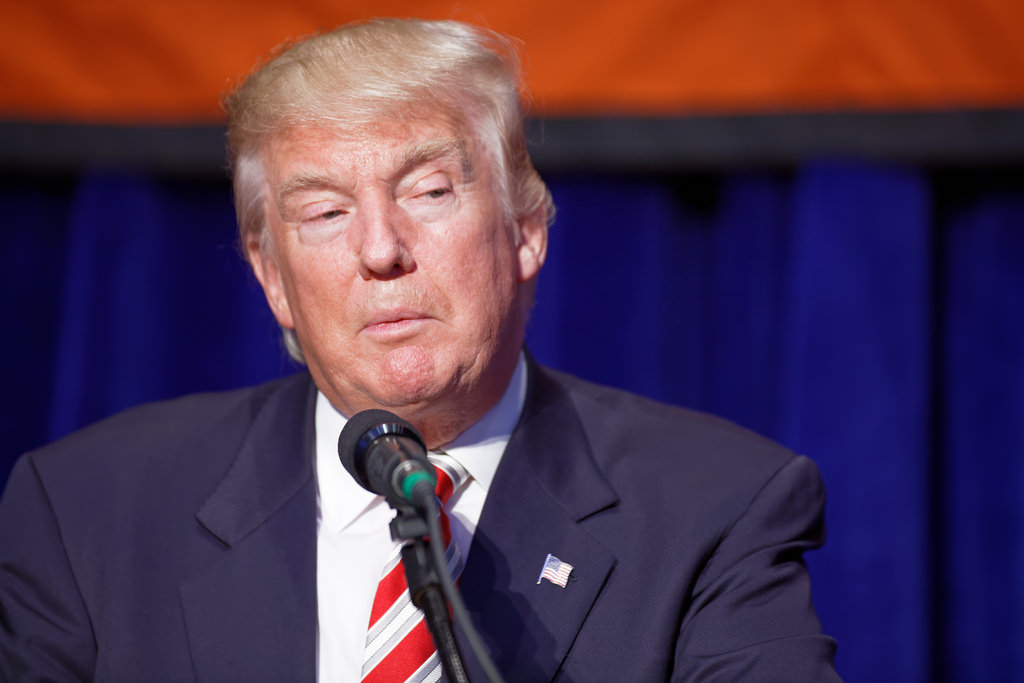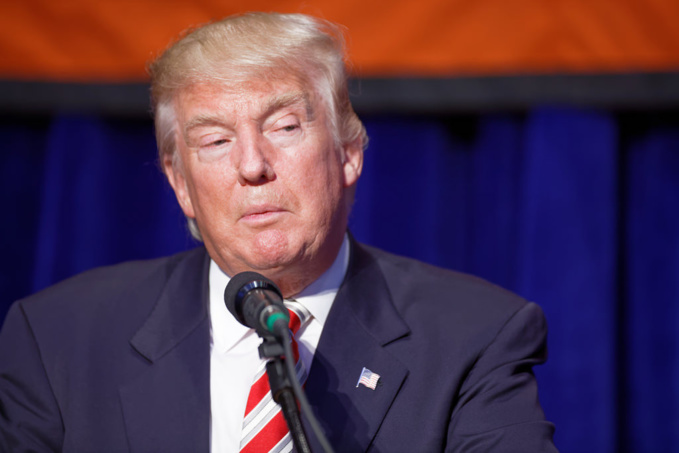The federal appeals court of the US refused to acknowledge legitimate President Donald Trump’s executive order 13769. Thus, the court upheld a decision to suspend the order, which was previously adopted by a federal judge James Robart in connection with a collective lawsuit filed by non-profit organization "The American Civil Liberties Union» (ACLU). Panel of three judges of the Court of Appeal was unanimous.
Initially, Donald Trump’s executive order "Protecting the Nation from Foreign Terrorist Entry into the United States" was to be in force for at least 90 days. Later, however, public outcry shortened the paper’s in-force period to 10 days. On his Twitter, Donald Trump has already promised to appeal the decision. "See you in court, the security of our country is at stake", - he wrote. "This is a very, very serious situation, so we hope to meet them in court. We're going to win this case," - assured President.
In addition, Donald Trump called the court's decision in San Francisco "political". The US President did not say what action will be taken on, but the formal verdict may be appealed to the Supreme Court within two weeks. The US Ministry of Justice, in turn, assured that "they are studying the decision and considering possible options."
Earlier Donald Trump’s order caused a lot of criticism from politicians and social movements in the United States and abroad. Libya's Foreign Minister Mohamed Siala expressed disagreement regarding the American president’s immigration policy, saying on the air that Donald Trump’s actions are "a racial and religious discrimination, and are not compatible with human rights." UN chief Antonio Guterres also said that control over national boundaries cannot be based on "any form of discrimination related to religion, ethnic or national origin, because it is contrary to fundamental principles and values on which our society is based."
President Trump’s executive order includes three major provisions:
• It suspends reception of refugees for 120 days
• Indefinitely prohibits placement of refugees from Syria
• Bans entry into the US for nationals from seven Middle Eastern and North African troubled countries for 90 days
The ban on entry into the US was applied to citizens of seven Muslim countries: Iraq, Syria, Yemen, Somalia, Libya, Sudan and Iran. There are civil wars currently going in the first five. In addition, all countries from the list are suffering from particularly acute problem of terrorism. In addition to Iran, all of them are in the top ten of the Global Terrorism Index.
At the same time, some Middle Eastern countries from the top of the Index, such as Egypt (5th place in the index) and Turkey (26th), managed to avoid the restrictions. Experts attribute this to Mr. Trump’s business interests there as he has projects in these and other countries in the region. His business empire, in particular, includes skyscrapers in Istanbul and golf courses in Dubai.
source: cnbc.com
Initially, Donald Trump’s executive order "Protecting the Nation from Foreign Terrorist Entry into the United States" was to be in force for at least 90 days. Later, however, public outcry shortened the paper’s in-force period to 10 days. On his Twitter, Donald Trump has already promised to appeal the decision. "See you in court, the security of our country is at stake", - he wrote. "This is a very, very serious situation, so we hope to meet them in court. We're going to win this case," - assured President.
In addition, Donald Trump called the court's decision in San Francisco "political". The US President did not say what action will be taken on, but the formal verdict may be appealed to the Supreme Court within two weeks. The US Ministry of Justice, in turn, assured that "they are studying the decision and considering possible options."
Earlier Donald Trump’s order caused a lot of criticism from politicians and social movements in the United States and abroad. Libya's Foreign Minister Mohamed Siala expressed disagreement regarding the American president’s immigration policy, saying on the air that Donald Trump’s actions are "a racial and religious discrimination, and are not compatible with human rights." UN chief Antonio Guterres also said that control over national boundaries cannot be based on "any form of discrimination related to religion, ethnic or national origin, because it is contrary to fundamental principles and values on which our society is based."
President Trump’s executive order includes three major provisions:
• It suspends reception of refugees for 120 days
• Indefinitely prohibits placement of refugees from Syria
• Bans entry into the US for nationals from seven Middle Eastern and North African troubled countries for 90 days
The ban on entry into the US was applied to citizens of seven Muslim countries: Iraq, Syria, Yemen, Somalia, Libya, Sudan and Iran. There are civil wars currently going in the first five. In addition, all countries from the list are suffering from particularly acute problem of terrorism. In addition to Iran, all of them are in the top ten of the Global Terrorism Index.
At the same time, some Middle Eastern countries from the top of the Index, such as Egypt (5th place in the index) and Turkey (26th), managed to avoid the restrictions. Experts attribute this to Mr. Trump’s business interests there as he has projects in these and other countries in the region. His business empire, in particular, includes skyscrapers in Istanbul and golf courses in Dubai.
source: cnbc.com



















